alwaysconnectedpc
Latest

Microsoft, Samsung and Qualcomm talk connected PCs in 2019
It's been slightly over a year a year since we saw the first crop of Microsoft's "Always connected PCs." By now, we know why a laptop that's always online is super appealing, and are well aware of the trade-offs. Making better connected notebooks in 2019 requires a team effort across software and hardware makers. They'll need to address challenges in educating the consumer, figuring out how to enable the sale of bite-sized chunks of data, as well as the evergreen desire for faster performance. One our stage at CES 2019, we talked to the following executives from Microsoft, Samsung and Qualcomm about their plans to improve connected computing in 2019, and how 5G will impact it all. Microsoft: Pete Bernard, Principal General Product Manager, Silicon Partnerships Samsung: Shoneel Kolhatkar, Senior Director, Mobile Computing Qualcomm: Don McGuire, Vice President, Global Product Marketing

Qualcomm's 8cx chipset just might make always-on PCs worth using
The last time I used one of new always-on PCs, I was intrigued by its potential -- why wouldn't I want to use an actual Windows computer that was always online? My job would be so much easier if I didn't need to, I don't know, stress about WiFi or events or file stories while waiting to get on the subway. Needless to say, the reality didn't quite live up to the hype.
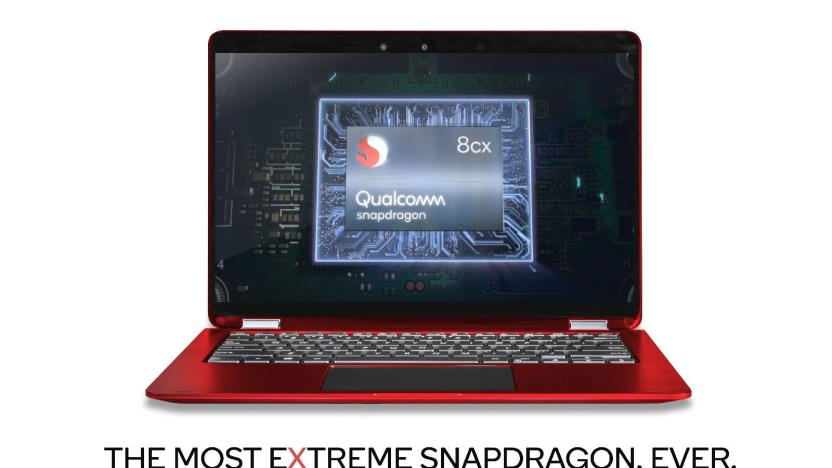
Qualcomm's new PC processor promises 'extreme' power
It's been a year since we've seen the first devices running Windows on Snapdragon, and Qualcomm is continuing its quest to make a capable ARM-based processor for PCs. On the third of its three-day tech summit in Hawaii today, the company unveiled the Snapdragon 8cx. It's Qualcomm's second made-for-Windows chipset, but one that the company says offers significantly better performance and energy efficiency. So much more, in fact, that the "x" in 8cx stands for "extreme."

HP Envy x2 review: Always-on LTE and an atrocious keyboard
I'll admit it. I'm besotted with the idea of Connected PCs. They're Windows laptops or 2-in-1s that have built-in LTE radios so you can stay online wherever you go. So far, we've only checked out Snapdragon-powered Connected PCs, but now we've finally gotten our hands on an Intel version -- the HP Envy x2. To be clear, HP makes both Snapdragon and Intel versions of this same detachable, but we're looking at the Intel system here.

Samsung Galaxy Book 2 review: A better, but limited Surface rival
Samsung's latest Surface wannabe has a surprising twist. On the outside, the Galaxy Book 2 looks very much like a clone of Microsoft's detachable, thanks to its new kickstand. But Samsung chose to equip the Book 2 with a Snapdragon 850 processor, turning this 2-in-1 into a Windows on ARM device that promises constant connectivity and a long-lasting battery. Add a brilliant display and an included S Pen and you've got a strong Surface Pro alternative. The company's proposition is compelling, but one big question remains: does speedy LTE and a super-long-lasting battery outweigh performance and app compatibility? The answer depends on your needs.
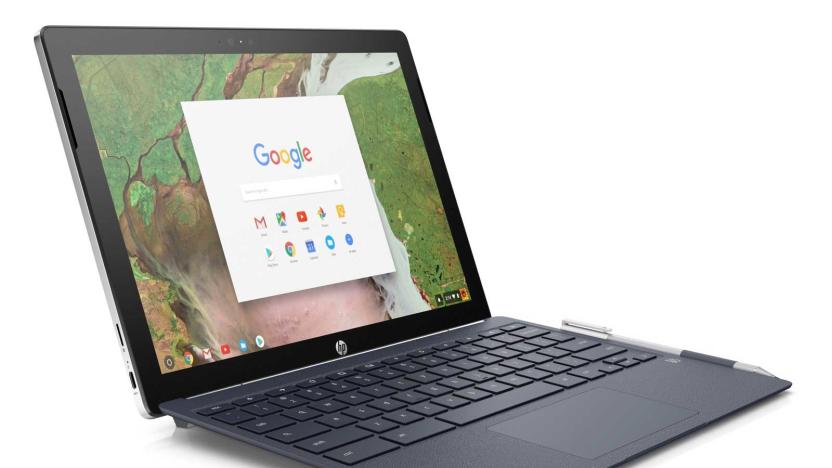
Snapdragon-based Chromebook could rival always-connected PCs
You don't have great choices for non-Intel processors on Chromebooks at the moment -- the Rockchip-made parts you often see in low-end systems keep costs down, but they struggle with intensive tasks. That might not be an issue in the future. About Chromebooks has discovered multiple code submissions hinting at "Cheza," a 2-in-1 detachable Chromebook that would use a Snapdragon 845 processor. While there are only so many clues you can obtain from code, this wouldn't be an entry-level device. The unit in testing is using a 2,560 x 1,440 display, and it's expected to have two USB-C ports. And since it's a Snapdragon 845, that would mean having a built-in gigabit-class LTE modem that could offer always-on access (rather important for an internet-centric device like a Chromebook, we'd say).

Microsoft and friends need to explain why always-connected PCs make sense
It's been over a year since Microsoft, Qualcomm and Intel unveiled the Always Connected PC (ACPC) ecosystem at WinHEC 2016. At Computex 2017, we learned about Qualcomm's undertaking to power PCs with its mobile processors and Intel pledged to support eSIM in all its coming radios. The first wave of devices trickling out haven't gained much traction with the public, though. Despite some fairly obvious benefits, like a constant connection to gigabit LTE, long-lasting batteries and thin, fanless designs. Plus, Sprint is offering free data this year with each Snapdragon-powered device.

Intel and Sprint team up to sell 5G PCs in 2019
It won't be long until 5G-equipped computers are more than just tradeshow demos. At Computex today, Intel announced that it's partnered with Sprint to sell 5G PCs in its stores next year. There aren't many more details about the arrangement, and Sprint hasn't said much about how it'll roll out 5G following T-Mobile's acquisition. At this point, the two carriers are basically spitting out corporate propaganda.

The Snapdragon 850 is Qualcomm's first chip built for Windows PCs
Qualcomm has developed a hobby. It's been building specialized chips for the Internet of Things and VR headsets lately, in addition to its smartphone-focused and wearable products. Today at Computex 2018 in Taiwan, the company unveiled the Snapdragon 850 -- a processor designed specifically for Windows devices. The chip is supposed to drive a new generation of Windows on Snapdragon devices around this holiday season, made by Qualcomm's numerous partners. In fact, Samsung announced today that it will be making a 2-in-1 PC powered by the Snapdragon 850.

Sprint will give free data to Snapdragon PCs
It's official. Sprint is definitely giving away free unlimited LTE data through 2018 to those who use laptops packing Qualcomm's Snapdragon 835 processor. We first learned of this last month, and the announcement today clarifies which devices qualify. If you own or buy the HP Envy X2, ASUS NovaGo or Lenovo Miix 630, you'll be able to get free unlimited data if you sign up for AutoPay with the carrier. This won't cover devices using the new Snapdragon 850 chipset, although that's not available in an actual computer yet, and we'll possibly hear more later this year.

Sprint offers free LTE data to anyone who buys a Snapdragon PC
The best thing about Qualcomm and Microsoft's "Always Connected PC" platform is the promise of being online anywhere, anytime. But that can also come at a cost -- data isn't free. That is, until now. Sprint is offering free unlimited 4G LTE to anyone who has a Snapdragon-powered PC, namely the ASUS NovaGo, the HP Envy x2 and the Lenovo Miix 630. The free data dries up on Dec. 31, 2018, after which you can cancel your subscription or pay $15 a month ($10 if you enable AutoPay). Note that you'll still have to pay "taxes, fees and surcharges," and be subject to "speed maximums."

Microsoft will bring 64-bit app support to ARM-based PCs in May
One of the biggest limitations of the Windows on Snapdragon platform is its inability to run 64-bit apps. Microsoft has said on multiple occasions that it intends to eventually offer that support, but we've not heard about a firm timeline until now. The company's general manager for Windows Erin Chapple told Engadget today that an SDK for ARM64 apps will be announced at the upcoming Build developer's conference.

ASUS NovaGo review: ‘Always online’ comes with limitations
As the first Snapdragon-powered PC available, the ASUS NovaGo has a lot riding on it. When Qualcomm and Microsoft teamed up to make connected PCs, they promised devices that would remain always on, always online and provide access to the apps you need to work on the go. So far, parts of that puzzle are missing -- like eSIM support from carriers. But that hasn't stopped the first wave of laptops, starting with the $599 NovaGo, from trying to leave their mark. It's meant to deliver the benefits of smartphone-like connectivity and battery life in a laptop, but unfortunately also highlights the limits of an unproven platform.
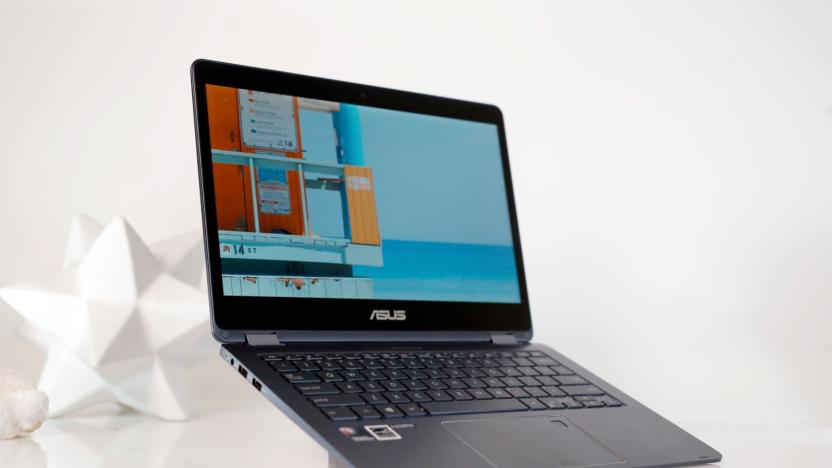
48 hours with an always on, always online laptop
"So you're the type of woman who takes your work everywhere with you?" my cab driver asked Sunday when I pulled out the ASUS NovaGo and started writing this very intro. Usually, I don't. But in the past few weeks, I've had to work nonstop, and the only hope I had at securing a good night's rest is chipping away at stuff while I'm out and about. That's made a portable, constantly connected and long-lasting laptop absolutely necessary. Microsoft promises just that with its 'always-connected PCs' -- notebooks that offer long-lasting batteries, are constantly connected to the internet and wake up as quickly as a smartphone.
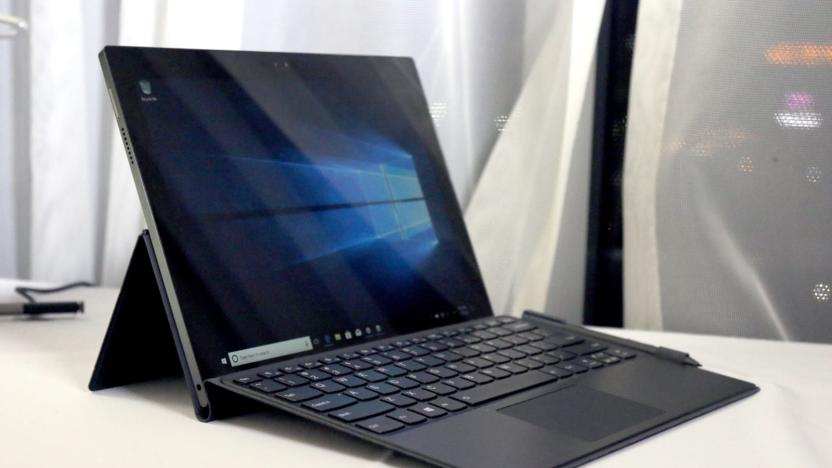
Lenovo Miix 630 hands-on: A solid keyboard and Snapdragon power
Last month, we saw the first Snapdragon-powered PCs from ASUS and HP -- laptops and convertibles that promised 20-hour battery lives, constant connectivity and a full Windows 10 experience. Here at CES 2018, Lenovo unveiled the 12.3-inch Miix 630 detachable, which is its first offering for Microsoft and Qualcomm's platform. At first glance, it's not significantly different from HP's convertible, but closer inspection reveals some key differences.

AMD and Qualcomm join forces to power higher-end connected PCs
Qualcomm may have found a worthy ally in its quest to take on the PC market. After unveiling a new stable of Snapdragon 835-powered "Always Connected" PCs from HP and ASUS, the chip-maker revealed a surprise partner: AMD. The two companies are teaming up to make Always Connected PCs on AMD's "Ryzen" mobile platform while using Snapdragon LTE modems to enable gigabit connection speeds. On gigabit LTE, you could potentially download a feature-length movie over cellular data in less than 30 seconds.
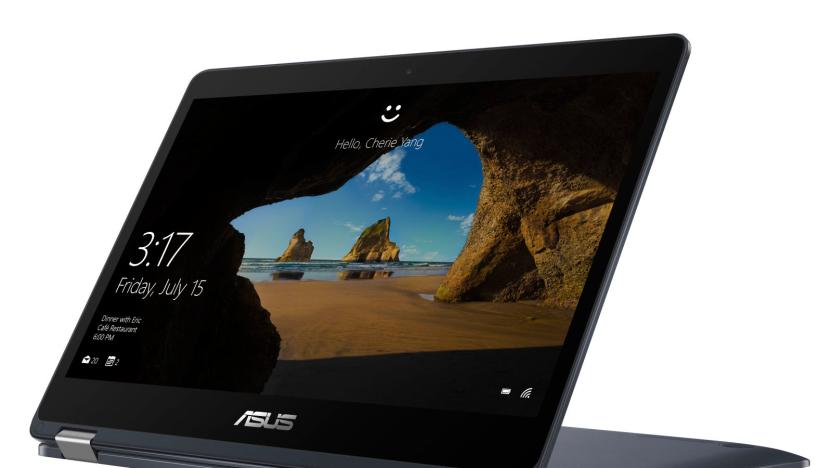
HP and ASUS unveil Snapdragon-powered laptops
Since teasing us with a preview of what Windows on Snapdragon will look like at Computex this year, Qualcomm and its partners are ready to reveal actual devices. Today, at Qualcomm's second annual tech summit, we saw the HP Envy x2 and the ASUS NovaGo -- two of the "Always Connected PCs" that Microsoft has talked about since last year. In fact, the ASUS is calling the NovaGo the first Gigabit LTE laptop, since it uses the Snapdragon chipset that enables those speeds.
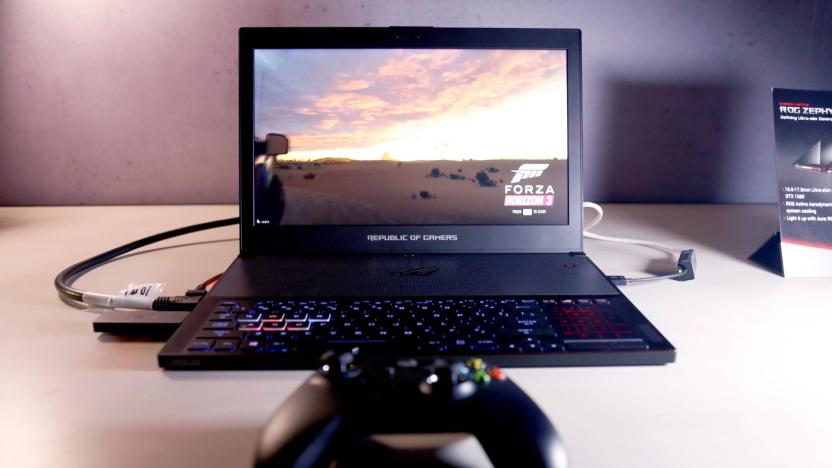
Computex gave us a glimpse at how computing will evolve
One thing was very clear at Computex: It's going to be a transformational year for computing. We're seeing several trends from the past few years -- like the move toward thinner and lighter laptops, and the rise of mobile computing -- evolve in new and intriguing ways. It was a surprising revelation for a trade show that's sometimes regarded as irrelevant. But, in some ways, it makes plenty of sense. Computex has always been the place to see the groundwork being laid for technology industry's next steps. It just so happens that this year was particularly ripe with innovation.
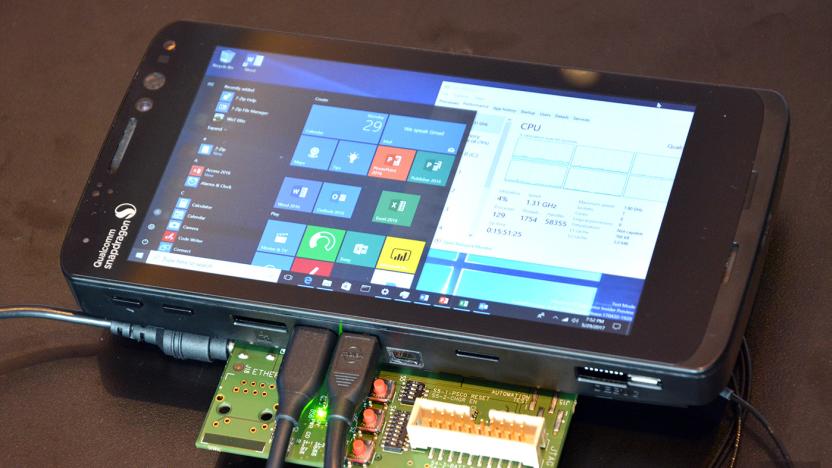
Windows on Snapdragon is key to making PCs more connected
Looks like Microsoft isn't done with its world tour. After a series of events in New York, Seattle and Shanghai, the company has yet another big announcement to make in Taiwan here at Computex 2017. And in keeping with the theme of bringing Windows everywhere, Microsoft is working with Qualcomm and Intel to deliver "Always Connected PCs" that are constantly online, have long-lasting batteries and portable designs.



